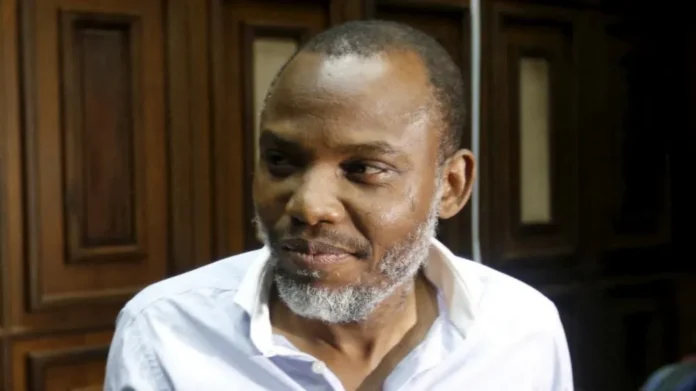(Reuters) – A Nigerian court on Thursday convicted separatist leader Nnamdi Kanu on all seven terrorism-related charges at the end of a decade-long trial that has inflamed tensions in the country’s southeast.
Judge James Omotosho said prosecutors, who have called for Kanu to be sentenced to death, proved that his broadcasts and orders to his now banned Indigenous People of Biafra (IPOB) group incited deadly attacks on security forces and citizens.
The violence was part of his push for an independent Biafra state for the ethnic Igbo-dominated region which attempted to secede as the Republic of Biafra in 1967, triggering a three-year civil war that killed more than 1 million people.
“His intention was quite clear as he believed in violence. These threats of violence were nothing but terrorist acts, which were duly carried out by his followers,” Omotosho said.
Security was tight around the Abuja court amid fears of protests and violence. Analysts warn that the conviction could stoke separatist sentiment and complicate efforts to restore calm in the region, where authorities blame IPOB for a wave of deadly attacks.
Kanu, who has been in custody since his controversial re-arrest in Kenya in 2021, shouted angrily in objection to the proceedings and was kicked out of court ahead of the ruling. He had argued that his unlawful extradition from Kenya undermined any chance of a fair trial.
Thursday’s judgment followed months of legal drama that included four different judges. The government closed its case after calling five witnesses, but Kanu refused to open his defence, arguing that Nigeria’s terrorism law had been repealed and that the charges were invalid.
His no-case submission was dismissed in September after sacking his legal team in open court, and the judge gave him multiple opportunities to present a defence.
Earlier in November, Omotosho ruled that Kanu had squandered a six-day window allotted for his defence and the court had no option but to close the case.
Kanu, a dual Nigerian-British citizen, first faced charges in 2015 and briefly secured bail in 2017 before fleeing the country.



















